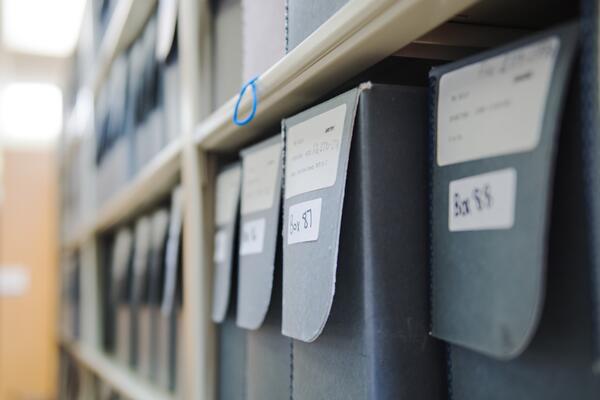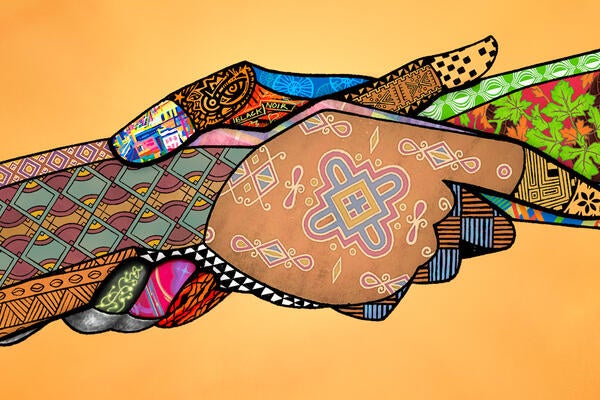
Discussing Truth and Reconciliation within the Catholic Church
St. Jerome’s University invites Archbishop Bolen to speak during the first Lectures in Catholic Experience series event this year

St. Jerome’s University invites Archbishop Bolen to speak during the first Lectures in Catholic Experience series event this year
By Jaime Philip St. Jerome’s UniversityOn September 28th, St. Jerome's University launched its annual lecture series titled, Lectures in Catholic Experience, with a timely talk with Archbishop Bolen, who addressed the Vatican's response to the Doctrine of Discovery. Archbishop Bolen was instrumental in organizing Pope Francis’ visit to Canada in July of 2022, and he continues to work meaningfully with Indigenous communities to build the path towards reconciliation.
The Pope's visit to Canada was in response to the call from Indigenous people to address the Catholic Church's role in the implementation of and the abuse of Indigenous people at residential schools. Pope Francis addressed the crowds who gathered across the country to hear his apology. He asked for forgiveness with his hope that the Catholic Church and Indigenous people would work together towards reconciliation.
It was during this initial visit when Pope Francis was asked to respond to the papal bulls of the 15th century. Specifically, the Doctrine of Discovery, and how it was used by colonizing powers and governments to justify their treatment of Indigenous people and to claim Indigenous land as their own. This call came from the Truth and Reconciliation Commission's final report and the 94 Calls to Action to address the legacy of residential schools and advance Canada's reconciliation process. Specifically, the Calls to Action and the United Nations Declaration on the Rights of Indigenous Peoples, speak directly to the work of the Catholic Church as a religious organization and their part in the reconciliation process.

During his lecture, Archbishop Bolen revisited the Pope's apology and addressed historical documents referencing the papal bulls — the basis for Christian European empires justifying their actions. Of note, he highlights that the Catholic Church is responsible for not publicly refuting the use of these documents in this manner. Archbishop Bolen drew attention to the fact that the Catholic faith does not share or teach these beliefs. A 2016 statement from the Guadalupe Circle states the Catholic Church's position on the Doctrine of Discovery, and it lays out clear actions for the continued work required towards reconciliation with Indigenous people.
The Pope's initial visit to Canada was the catalyst for starting the conversation with Indigenous people and for the hard work to continue. His message of hope and his recognition that reconciliation cannot happen without truth first has laid the groundwork for Catholic organizations, such as St. Jerome's, to demonstrate how to be a Catholic university at the University of Waterloo.
“We are so grateful to Archbishop Bolen for his talk and the time he spent engaging with Indigenous members of our community," stated Peter Meehan, president and vice-chancellor at St. Jerome’s University. “He has embodied both the humility and the penitential spirit that is so important to reconciliation, and to building both trust and understanding with Indigenous people.”
Please visit our website to watch this lecture and to learn more about the Catholic Church's work towards reconciliation.

Read more
Upside Robotics secures new funding to accelerate the future of sustainable farming

Read more
Discover the meticulous work that uncovered Black stories on campus and preserved them for the future

Read more
A message from the President and Vice-Chancellor
The University of Waterloo acknowledges that much of our work takes place on the traditional territory of the Neutral, Anishinaabeg, and Haudenosaunee peoples. Our main campus is situated on the Haldimand Tract, the land granted to the Six Nations that includes six miles on each side of the Grand River. Our active work toward reconciliation takes place across our campuses through research, learning, teaching, and community building, and is co-ordinated within the Office of Indigenous Relations.